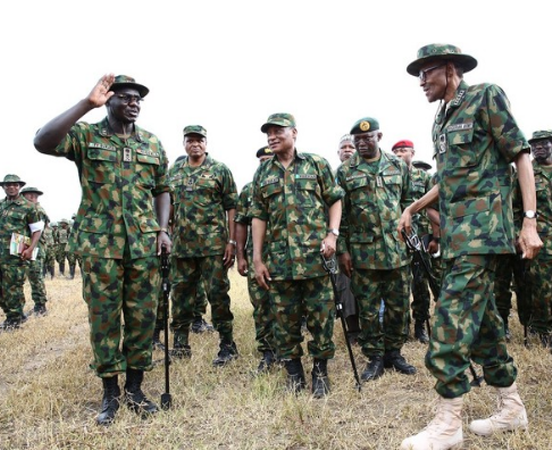There are no products in your shopping cart.
| 0 Items | £0.00 |


NIGERIA'S presidency has hit back at fears raised by a member of the British House of Lords Baroness Anne Cox who wrote to the Commonwealth Secretariat expressing her concerns over the escalating violence in the country asking it to intervene in the matter.
Over recent years, insecurity has grown in Nigeria with Boko Haram stepping up its insurgency in the northeast, armed Fulani herdsmen carrying out murderous attacks against villages, kidnapping being on the rise and bandits running riot across the northeast of the country. In response to the mayhem, Baroness Cox has written to secretary-general of the Commonwealth, Hon Patricia Scotland, pointing out that Nigeria’s inability to protect its vulnerable citizens was a breach of its obligations under the Commonwealth Charter.
However, the presidency, faulted the sources of information upon which the letter was based. President Muhammadu Buhari's spokesman Mallam Garba Shehu, said legal experts and campaigners should work with President Buhari, not fall for propaganda. Baroness Cox, Baroness Kennedy, Jim Shannon, Fiona Bruce, former Archbishop of Canterbury, Lord Williams and 14 other prominent Britons have asked the Commonwealth to conduct an impartial investigation into the killings in Nigeria and bring the perpetrators to justice.
They expressed indignation over the killings by Boko Haram insurgents in the northeast and Fulani herdsmen in the Middle Belt region and said the failure of the Federal Government to protect Nigerians was a breach of the Commonwealth charter. They, therefore, requested the Commonwealth to raise the killings with the Ministerial Action Group.
However, Mallam Shehu said: “At the same time as we take note of the lawmakers’ letter, it is also important to stress to our partners and colleagues in the United Kingdom that not all who press them have the best interests of either democratic governance or peaceful coexistence in mind. For example, the former Nigerian chief of army staff named and quoted in the letter as a source on military matters, relinquished that position some 40 years ago in 1979.
“He was last in a government position 17 years ago in 2003 as minister of defence and at that time, religious and ethnic riots erupted in two states of the federation in 2001 and 2002. These were violently and ruthlessly put down by the military under his authority, leading to the loss of thousands of lives and the displacement of some further 50,000 persons. He is, therefore, not a natural source of pressure for good governance.”
“Another, signatory to the letter, is well-known to be associated with the Indigenous People of Biafra (Ipob), a Nigerian-blacklisted terrorist group. Ipob are running a well-known international campaign intended to damage the reputation of Nigeria and its government in order to further their cause of independence and this man jumped bail in Nigeria, he frequently travels on a Nigerian passport but urges his supporters to burn their passports.
"Ipob barely mention their aims in their publicity and neither do they mention that their own leadership does not claim to be Christian. Yet, their media and lobbying campaign have focused near-exclusively on promoting matters related to Christianity in Nigeria, promulgating false claims that a government with 50% of its cabinet and 50% of its state governors who are Christian somehow works against Christians."
He added, however, that President Buhari and the federal government welcomed the seriousness of the letter and the attention paid to it by the Commonwealth Ministerial Action Group. Mallam Shehu expressed the government’s readiness to work with the lawmakers, the Commonwealth and all concerned parties to bring a lasting solution to herder-farmer clashes, and the threat posed to all Nigerians and the Sahel region as a whole from Boko Haram terrorists and their allies.